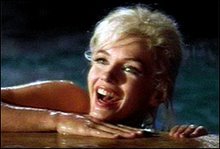 Obama Color by ~timmywheeler
Obama Color by ~timmywheelerI thought this article about the influence of behavioral economics on the Obama campaign's policies was quite interesting and worth a read.
...
As it happens, Thaler is revered by the leading wonks on Barack Obama's presidential campaign. Though he has no formal role, Thaler presides as a kind of in-house intellectual guru, consulting regularly with Obama's top economic adviser, a fellow University of Chicago professor named Austan Goolsbee. "My main role has been to harass Austan, who has an office down the hall from mine, " Thaler recently told me. "I give him as much grief as possible." You can find subtle evidence of this influence across numerous Obama proposals. For example, one key behavioral finding is that people often fail to set aside money for retirement even when their employers offer generous 401(k) plans. If, on the other hand, you automatically enroll workers in 401(k)s but allow them to opt out, most stick with it. Obama's savings plan exploits this so-called "status quo" bias.
And, yet, it's not just the details of Obama's policies that suggest a behavioral approach. In some respects, the sensibility behind the behaviorist critique of economics is one shared by all the Obama wonks, whether they're domestic policy nerds or grizzled foreign policy hands. Despite Obama's reputation for grandiose rhetoric and utopian hope-mongering, the Obamanauts aren't radicals--far from it. They're pragmatists--people who, when an existing paradigm clashes with reality, opt to tweak that paradigm rather than replace it wholesale. As Thaler puts it, "Physics with friction is not as beautiful. But you need it to get rockets off the ground." It might as well be the motto for Obama's entire policy shop.
Sociologically, the Obamanauts have a lot in common with the last gang of Democratic outsiders to make a credible run at the White House. Like Bill Clinton in 1992, Obama's campaign boasts a cadre of credentialed achievers. Intellectually, however, the Obamanauts couldn't be more different. Clinton delighted in surrounding himself with big-think public intellectuals--like economics commentator Robert Reich and political philosopher Bill Galston. You'd be hard-pressed to find a political philosopher in Obama's inner wonk-dom. His is dominated by a group of first-rate economists, beginning with Goolsbee, one of the profession's most respected tax experts. A Harvard economist named Jeff Liebman has been influential in helping Obama think through budget and retirement issues; another, David Cutler, helped shape his views on health care. Goolsbee, in particular, is an almost unprecedented figure in Democratic politics: an academic economist with a top campaign position and the candidate's ear.
...
Also in The New Republic: Even white supremacists don't hate Obama
Yet, far from railing at Obama's rise, Duke seems almost nonchalant about it. Self-described white nationalists like himself, he explained cordially, "don't see much difference in Barack Obama than Hillary Clinton--or, for that matter, John McCain."









6 comments:
I'll have to wait to read that until I'm less busy with looser W2 stuff, but I just wanted to slip in a quick Murst!
Hmm. The biggest idealist in the race is also the biggest pragmatist. What exactly do those other candidates offer again?
Well, I think the idealist crap was due to MSM pundits fueled by the Billary campaign that feels they don't like them, but he strikes as the most fiscally sane Dem in my lifetime and the article explains why.
I'll take his rhetoric over the rest of the losers.
And I know how to manage a big python too.
The neo-cons never got no loving from their mamas, that is why they are so bitter.
We are the Ones
Post a Comment